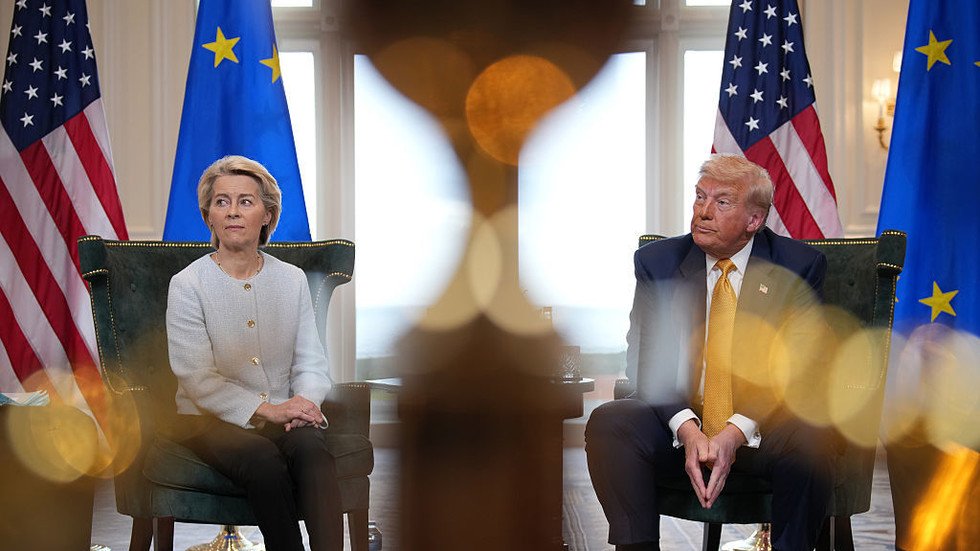HANOI, Vietnam (AP) — Russian President Vladimir Putin and North Korean leader Kim Jong Un signed an agreement on Wednesday pledging mutual aid if either country faces “aggression,” a significant strategic pact as both nations confront escalating standoffs with the West.
Details of the agreement were not immediately disclosed, but it could represent the strongest link between Moscow and Pyongyang since the end of the Cold War. Both leaders described it as a major upgrade in their relations, encompassing security, trade, investment, cultural, and humanitarian ties.
The summit took place during Putin’s first visit to North Korea in 24 years, amidst growing concerns from the U.S. and its allies over a possible arms deal that might see Pyongyang supplying Moscow with much-needed munitions for its war in Ukraine. In return, North Korea could receive economic assistance and technology transfers to enhance its nuclear weapons and missile program.
Following his North Korea visit, Putin traveled to Vietnam, where he received a red-carpet welcome. In Hanoi, Putin is scheduled to meet with Communist Party General Secretary Nguyen Phu Trong and new President To Lam to reinforce ties with a longstanding partner.
During the summit in North Korea, Kim Jong Un hailed the agreement as their “strongest ever treaty,” asserting that it elevated their relationship to the level of an alliance. He pledged full support for Russia’s war in Ukraine. Putin praised the agreement as a “breakthrough document,” reflecting their shared aspirations to deepen bilateral relations.
Historically, North Korea and the former Soviet Union signed a treaty in 1961 that obligated Moscow to intervene militarily if the North was attacked. This treaty was replaced in 2000 with one offering weaker security assurances. It remains unclear if the new agreement matches the 1961 treaty’s level of commitment.
During his visit, Putin thanked Kim for North Korea’s support in Ukraine, describing it as part of a joint fight against the U.S. and its allies’ “imperialist hegemonistic policies.” Kim reiterated his consistent stance that North Korea supports Russia’s actions to protect its interests against Western aggression.
The United States and South Korean officials have accused North Korea of providing Russia with military equipment for the Ukraine conflict, potentially in exchange for military technologies and aid. Recent reports indicate that North Korea has unlawfully transferred significant amounts of ballistic missiles and munitions to support Russia’s war effort, allegations both countries deny.
Russia and China have politically supported North Korea’s nuclear ambitions, blocking U.S.-led efforts to impose additional U.N. sanctions on Pyongyang for its weapons tests. Earlier this year, Russia vetoed the U.N. Security Council’s monitoring of sanctions against North Korea, drawing accusations of seeking to evade scrutiny.
Putin’s foreign affairs adviser, Yuri Ushakov, noted that the leaders exchanged gifts, with Putin presenting Kim a Russian-made Aurus limousine and other items, while Kim gifted Putin artwork depicting the Russian leader. The two leaders attended a concert featuring patriotic performances and military displays.
In Washington, U.S. Secretary of State Antony Blinken remarked that Putin’s visit exemplifies Russia’s desperation to strengthen relations with nations capable of supporting its war efforts. South Korea’s Unification Ministry stated it is analyzing the summit’s implications, particularly regarding Russia’s potential response if North Korea is attacked.
China, North Korea’s primary ally, provided a neutral response to the summit, emphasizing it as a bilateral arrangement between sovereign states.
Putin’s trip signifies a notable shift, highlighting Moscow’s outreach to bolster its international influence amidst the Ukraine conflict. The partnership could see increased labor exports from North Korea to Russia, expanded cooperation in agriculture, fisheries, and mining, and boosted Russian tourism to North Korea.
The agreement comes at a time of heightened tensions on the Korean Peninsula, with increased weapons tests by North Korea and intensified military exercises involving the U.S., South Korea, and Japan.



